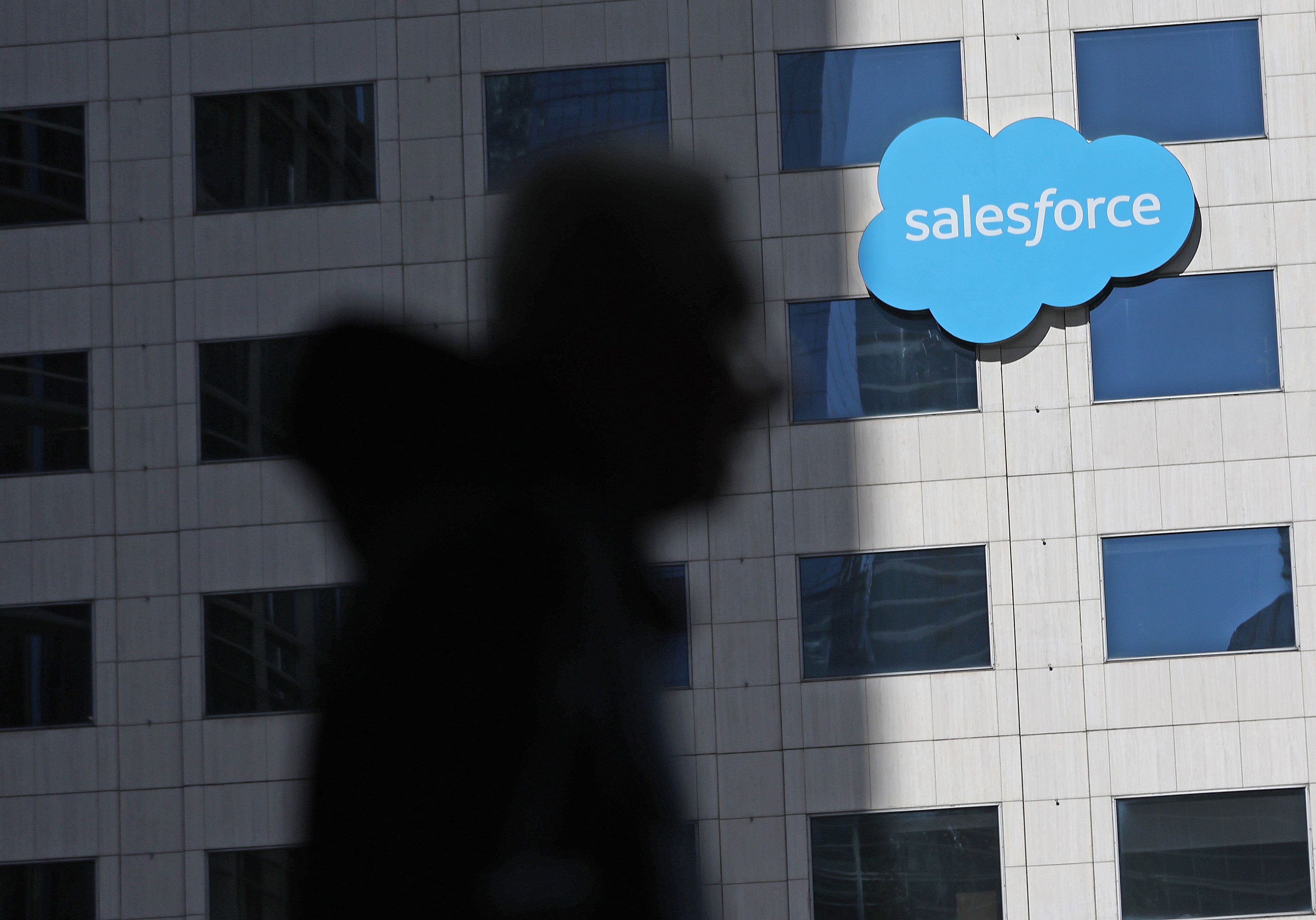
After Salesforce ( CRM ) reported fourth-quarter results for the 2024 fiscal year , company executives discussed the company’s position to provide data to train enterprise artificial intelligence (AI) models, data cloud growth amid AI demand, how AI is yet to boost the company’s bottom line, and its first dividend.
Salesforce Filling the Data Gap for Entreprise Customers
Salesforce chief executive officer (CEO) Marc Benioff said that the company’s enterprise customers can “automatically integrate into [Saleforce’s] data cloud, all of those systems, and then seamlessly provide that data back into these amazing tools.”
While many companies may be looking to leverage AI tools, significant amounts of data are required to train AI models. “The entire AI revolution is built on this foundation of data,” Benioff explained.
He said that many customers have “islands of trapped data” in various systems. “But the AI is not going to work because it needs to have the seamless, amalgamated data experience of data and metadata. And that’s why our data cloud is like a rocketship.”
Benioff said Salesforce’s data cloud is “deeply integrated” into all its tools and its entire platform. “It is self-service for all our customers to turn on,” he said. “It is our fastest growing product ever. It’s our total focus for fiscal year (2025).”
Salesforce offers its data cloud services to its enterprise customers, alongside its Einstein 1 platform.
Monetizing AI-related products and services to enterprise customers has been a theme among tech giants’ earnings .
Data Cloud Growth Reflecting AI Demand
Salesforce reported that its data cloud segment grew 90% year-over-year, approaching $400 billion. Chief operating officer Brian Millham said that this growth is “an indicator of the demand that we’re seeing for people to get ready for the AI transformation.”
The company said that around a quarter of its deals worth more than $1 million included data cloud and cited customers such as Xerox ( XRX ) and the London Stock Exchange .
“We’re just at the beginning of a new innovation cycle that will spark a massive software buying cycle over the coming years, and Salesforce is leading the way” as the company continues to see “strong demand for our data products as customers lay the foundation for AI,” Millham said.
AI Isn’t Translating to Revenue Boost, Yet
While Salesforce sees significant AI-related opportunities, these gains are yet to translate into higher earning and aren’t expected to do so in the near term.
Chief financial officer Amy Weaver said that Salesforce is “not factoring in material contribution from these products into our FY 25 revenue guidance at this time.” The customer relationship management company expects single-digit revenue growth for the 2025 fiscal year.
Millham noted that “while we’ve seen great progress, there’s a lot of promise” with the Einstein 1 platform, it is “not a huge factor” in 2025 guidance. Millham added that investors will see revenue growth from AI products in “years two and three.”
First Dividend and Another $10B for Buybacks
Salesforce announced its first-ever dividend and additional funds for its ongoing share buyback program.
“We are enhancing our capital return strategy reflective of the confidence we have in the future of our business, and our ability to drive long-term cash flow,” Weaver said.
The quarterly dividend starts at 40 cents. Salesforce authorized an additional $10 billion for its share repurchase program, for which approximately $18 billion remains.

